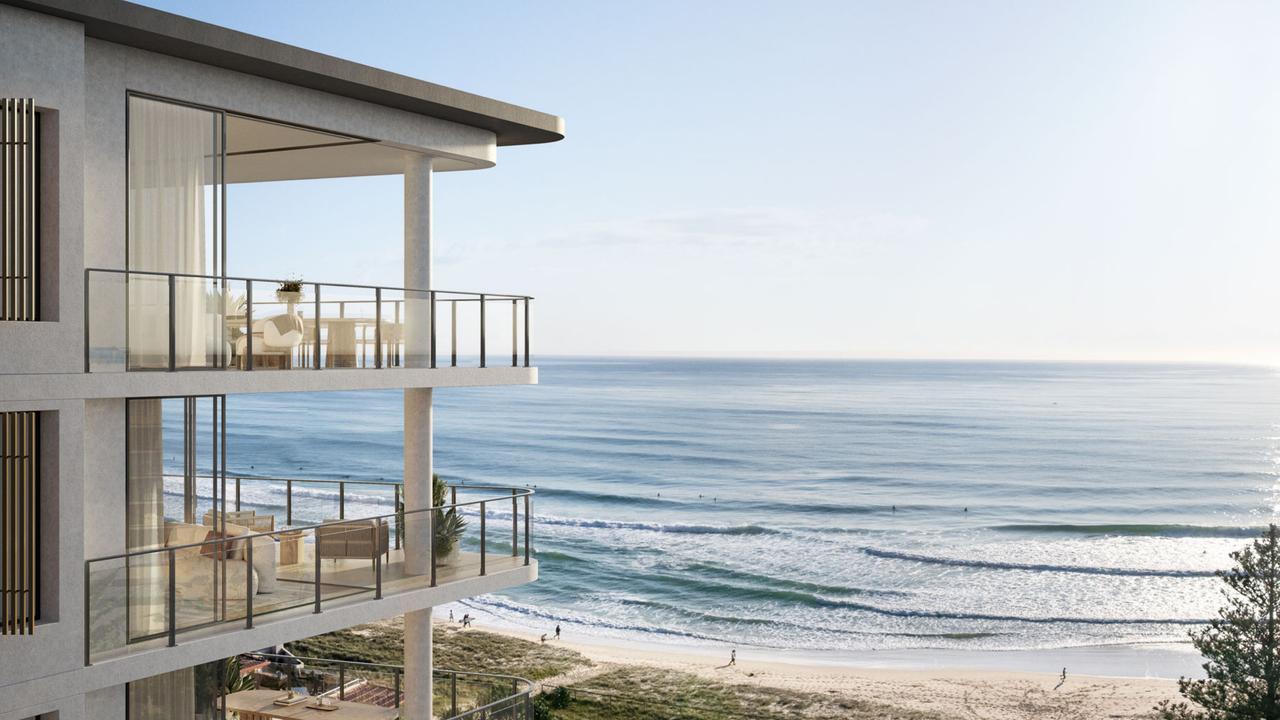Anzac Day 2019: World War II veteran Arthur Dean’s memoirs revealed by Gold Coast veteran Jason Tuffley
A former Gold Coast Army officer has revealed the astonishing war diaries of a Southport man who saw some of World War II’s most horrifying moments. This is the Digger’s incredible story and the Australian humour which kept him going.
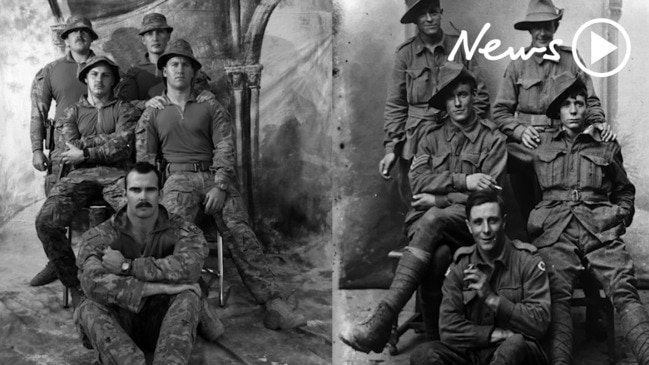
Gold Coast
Don't miss out on the headlines from Gold Coast. Followed categories will be added to My News.
SITTING in his barracks in Afghanistan, then-Army reservist Jason Tuffley felt the emotions rise deep within him.
It was late 2017 and thousands of kilometres away from his family and friends, he sat holding 59 photocopied pages filled with faded cursive handwriting that told the harrowing tale of survival of a Digger he came to know only briefly as an old man.
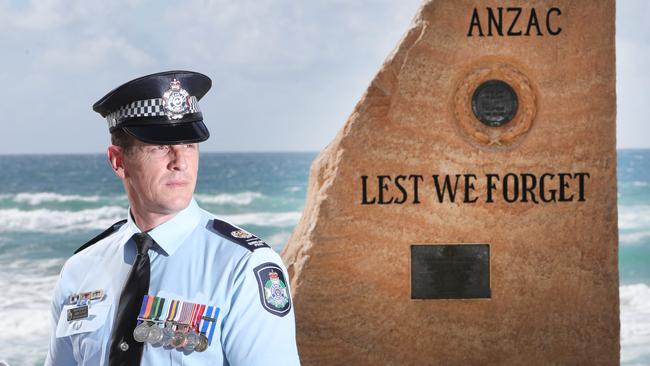
The 46-year-old read the memoirs of the late Arthur Dean, whose war journey took him from Southport to Singapore and Japanese captivity in World War II, and began slowly and painstakingly typing out the words.
Today the police officer will think of former Corporal Dean as he lays a wreath at the Surfers Paradise cenotaph at annual Anzac Day commemorations.
“I got to know Arthur in his 90s when he was living in a nursing home in Southport with his wife and even then he was sharp as a tack and really funny,” Senior Sergeant Tuffley said.
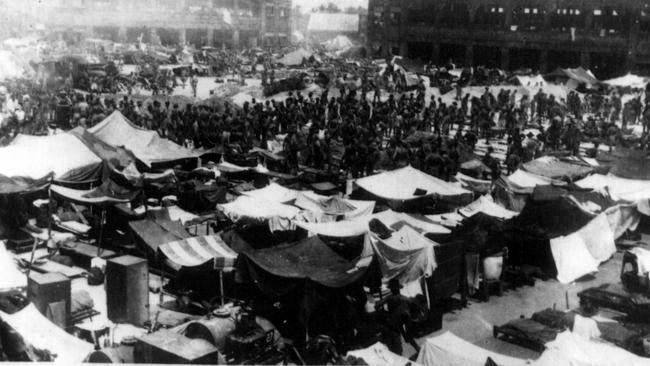
“He was part of what was known as F-Force and his journey finished at Hellfire Pass, but he had that Australian sense of humour and always told me about the funny side of the war.
“Arthur told me that no Australian was allowed to die without another being in attendance which struck me as an incredible act of mateship and compassion.
“During my own deployment I was on my own in a foreign country and when you are there you reflect on those who have gone before, so I took his memoirs and started typing them up.”
Arthur Thomas Albert Dean was born in Kelvin Grove, Brisbane in July 1913, but spent most of his life on what would become the Gold Coast.
He joined the second Australian Imperial Force in 1940 at the age of 27 as an escape from the tough financial times which followed the Great Depression.
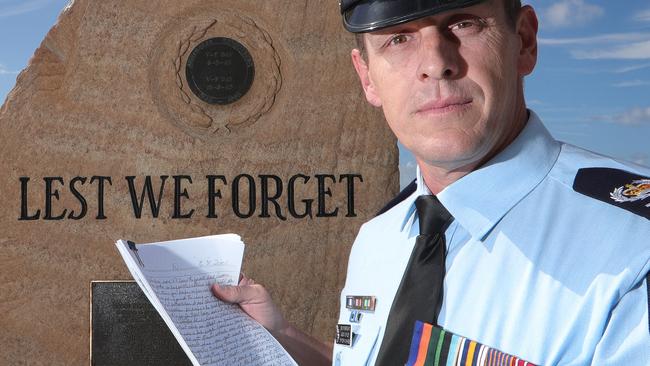
During his service he saw the fall of Singapore in 1942 and spent much of the war as a captive of the Empire of Japan.
The corporal and his fellow soldiers were forced to work slave labour for the Japanese and build the infamous Burma railway.
After being freed from captivity in 1945, he returned to Australia to work for what became the Gold Coast City Council.
Mr Dean’s story went unwritten for decades until 2001 when, at age 88, he was inspired to finally commit his memories to paper.
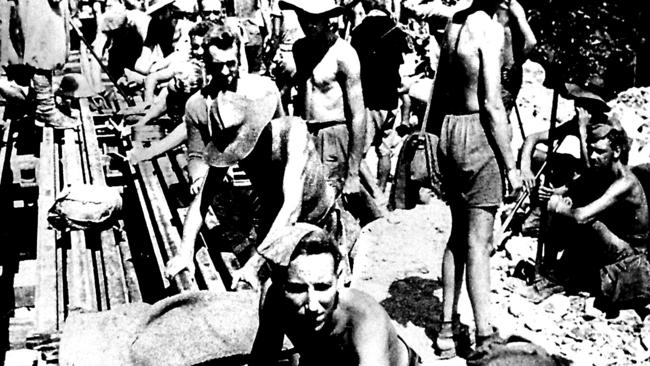
“Yesterday was Victory in the Pacific Day and the period (since the war ended) has been 66 years, so before time catches up I will put a few items on paper as far as my memory allows,” he wrote on August 16, 2001.
Sen-Sgt Tuffley met Mr Dean in 2006 at a Southport nursing home. He was visiting another veteran and struck up a conversation. They bonded over their shared military history.
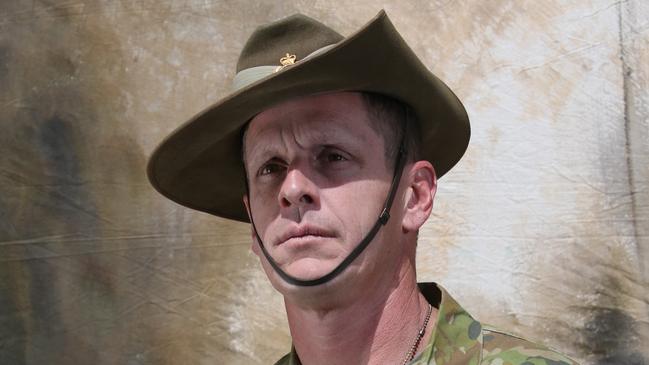
SUBSCRIBE TO THE BULLETIN FOR JUST $5 A MONTH FOR THE FIRST THREE MONTHS
The older veteran allowed the younger man to make copies of his diaries in the hopes of having them transcribed.
“Life catches up with you and it took me a number of years to do,” he said.
“Life goes on and I never got to say goodbye to Arthur before he died.”
Sen-Sgt Tuffley is hoping to contact Mr Dean’s surviving family to give them a copy of the transcribed diaries.
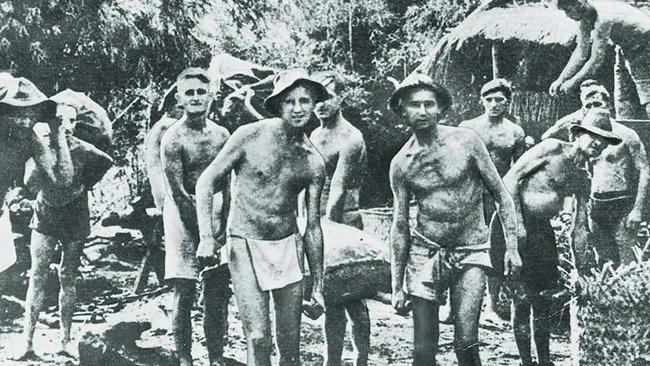
However, he has been unable to find them. Council and defence authorities do not have photos of Mr Dean, but his military records are held in Canberra and he is honoured on a war memorial in Victoria commemorating prisoners of war.
Sen-Sgt Tuffley, now the officer-in-charge at Surfers Paradise Police Station, comes from a family with a long military tradition which settled in the region more than 130 years ago.
“My family has been on the Coast since the 1880s and my father was in the Army while my grandfather served on the Western Front in World War I with the 24th Battalion,” he said.
“I grew up with reminders of this and wanted to follow them.”
Excerpts from the diaries of Corporal Arthur T Dean (written August 16, 2001)
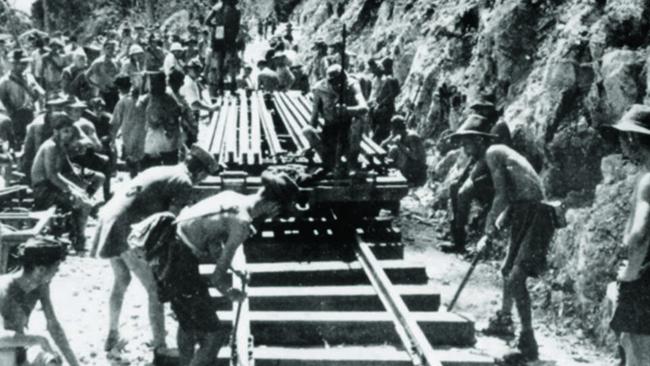
Why I joined up (1940)
“I joined the army in mid forty (1940). It was not patriotism, it was plainly a case of the depression, no money and no prospects. I joined up with a few Southport boys (and) went to Enoggera and then to Grovely which was a new camp.”
The war in Singapore (1941)
“In September and November (1941) we were put on alert with no leave as Japan was starting to stir things up. At 3am on the morning of the eighth of (December) we were awakened by a lot of (aircraft) noise and aeroplane engines and bomb blasts. We all said “the Poms are putting on a really good practice this time” and it all quietened down after about half an hour. We all went back to our cots only to realise a few hours later that the war in the Far East had sneaked up on us.”
The Fall of Singapore (1942)
“People talk about remorse. Just imagine how we felt. We had a job to do (stop the Japanese) and we failed. Of course you go on (thinking) ‘what we should have done?’. How stupid we were to be fooled so easy. Then on Sunday the 15th of February 1942 the sirens gave a short and long blast at 8.30pm and we knew it was over. The three of us – Bill Ross, George Croft and Arthur Dean – sat down in the gutter and said ‘what do we do now?’.
George Croft said ‘I know’ and he brought out a full bottle of Johnny Walker whisky out of his pack. The three of us knocked it off and lay down in the gutter and slept.
We had had no food for three days and no sleep for more than that, so you can guess the state we were in (the next morning).”
Life as a PoW (1942-1945)
“The march from Bampong ... if you could call it a march ... was a long walk. (The Japanese) were concerned about the planes as (Ally planes) use to fly over regular, they have had photos of every part of the country. Overall it took sixteen nights and missed a lot of meals every day. It was approximately 300km along jungle tracks, you could hear a tiger roar now and again which gave you added incentive to keep moving and the natives often attacked stragglers and stole their packs.”
Impact on soldiers
“We were put to work immediately, first making a road and bridge. It was raining a lot of the time but it never got cold. But all the different tropical diseases made up for that. People soon started to lose weight and get very sick and a lot was to blame for lack of food and malaria.
I had malaria thirty-two times while I was a PoW and every known tropical disease except cholera and small pox of which a lot of the boys died.
Another chap and I were detailed to work on the fire, burning the bodies of our boys who died from cholera. We burned forty-five boys in three days and were then replaced by two more to do the job. People talk about stress but they don’t know the meaning of the word, it was hard on the nerves and all the time you were aware of how contagious it was.
And at the time were down to a tablespoon of cooked rice a day for ten days due to a lack of transport, the state of the track and the monsoons.”
The horrors of war
“The most terrible thing I ever saw in my life happened when we were digging the road up to the shrine at Buket Timah.
As you no doubt understand it was a very bad crime to speak to the natives or any other nationality as you may be making plans for escape or something of such. There was a Malay girl trying to sell use slices of pineapple. She was about eighteen or nineteen and had only a sarong around her and a jap officer rushed up and pulled out his samurai sword and chopped her across the stomach. She collapsed in the dirt and her entrails fell out in the dirt and she died trying to put everything back in, plus dirt, sticks and leaves and a lot of blood.
How any living person could be as cruel, ignorant and without any remorse I’ll never know. I saw a lot of things but this left us dumb- founded and this bastard thought it was funny.”
Meeting Mountbatten in 1945
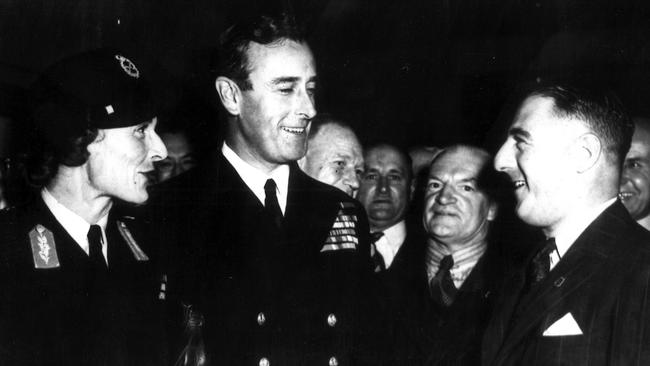
“Lord and Lady Mountbatten arrived at Changi, a day or two later he ran up the British flag and pulled down the (Japanese) flag. He was in the back of a jeep telling us all of the campaign in Burma. His language was very rough in places, quite a few people were trying to catch his eye and he eventually caught on and he tapped her on the head and said “you must try to understand she has not been with me all the time’” which caused a laugh.”
Going home (1946)
“The war ended Aug 15 (1945) and we waited ’til October but the extra food and medication worked wonders for us. We were given a bit of exercise and entertainment which helped to put up with the waiting. We eventually were told we were sailing the next day on the Duntroon and it came to be true. It was not as good as travelling the we left Aust by the way of the Queen Mary but very welcome.”
Life after war
“For a while you get itchy feet but time slowly gets rid of that and you start to get back to the old way of life. You wonder how you ever survived the bugle calls, the parades and most of all the regimentation, but even now it is amazing how you get memories when you hear noises like bugle calls and crackers, some things you never forget.”

